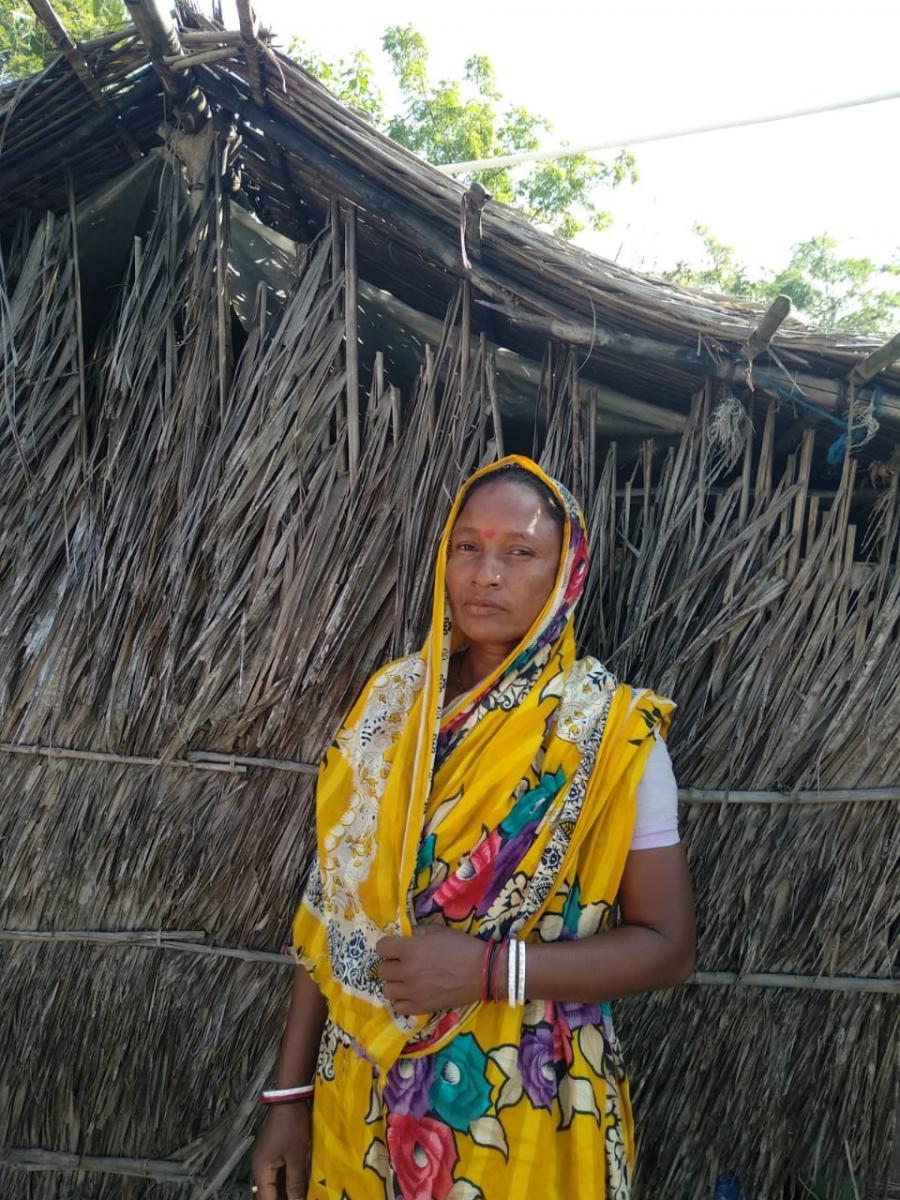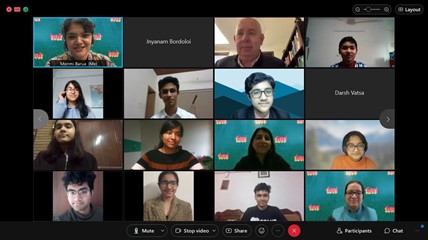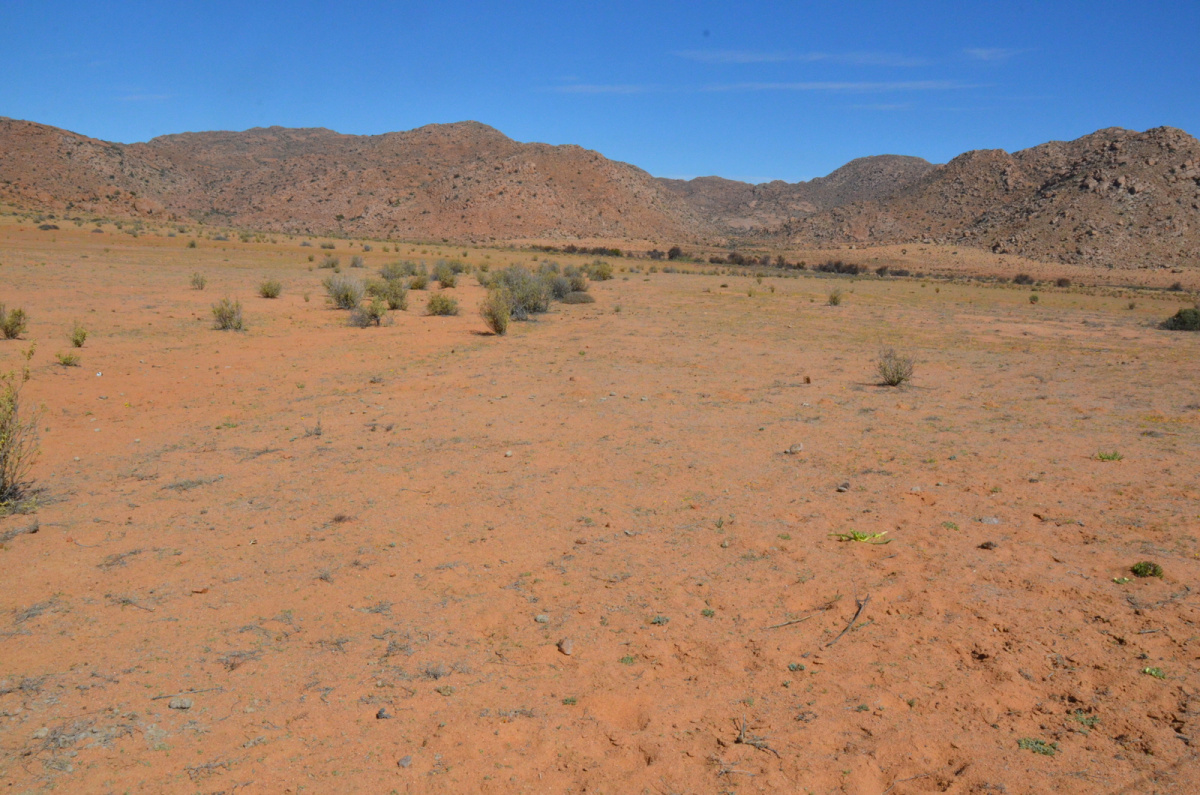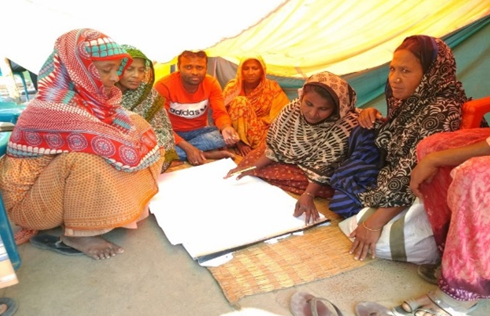COVID-19 and Climate Change: Double Jeopardy for Traditional Resource Users in the Sundarbans
CEESP News: by Rashed Al Mahmud Titumir*
The combined impact of climate change and COVID-19 pandemic is aggravating the marginalisation of the indigenous and local communities in the Sundarbans, an area which spans across the regions of Bangladesh and India. Majority have lost their incomes, without any alternative income-generating opportunities, leading to an increase in poverty. The absence of adequate, universal social security programmes exacerbated the distress in life and livelihoods.
Photo A: Bisaka Munda in front of her house. Photo B: Mangroves in the Sundarbans, an area which spans across the regions of Bangladesh and India. Photo © Unnayan Onneshan
Bisaka Munda, an indigenous female 'traditional resource user' (TRU) in the Sundarbans, has been gathering golpata (Nypa fruticans), collecting fish and crabs from the forest, and selling them in the local market. She has been significantly contributing to her family with this income.
However, when nationwide lockdown was imposed in response to COVID-19, she was compelled to sit idle, unable to go to the forest or market. As a result, Bisaka, like many other TRUs, incurred substantial income loss.
At the same time, Amphan, a super cyclone that recently afflicted the coast of Bangladesh, caused severe destruction to her house and crop fields— further exacerbating the existing life and livelihood distress of many indigenous and local peoples in COVID-19 era. Her husband, a TRU too, also lost income-generating opportunities, and was unable to find another due to lack of alternative options. The economic hardship resulting from COVID-19 and frequent natural disasters often also increases domestic violence in the families like Bisaka's.
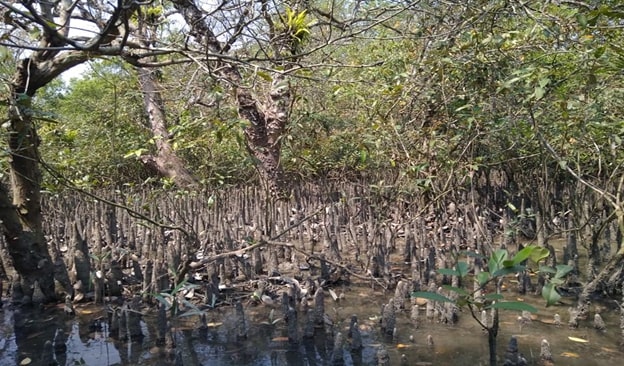 Photo: Unnayan Onneshan
Photo: Unnayan Onneshan
The Sundarbans is an area which spans across the regions of Bangladesh and India, constituting 39.5% of the total forest area of Bangladesh, supporting livelihoods of 3-5 million people. The TRUs, living in and depending on the forest for their livelihoods, historically face multiple pressures owing to discriminatory clientelist networks in forest use and management, which are disadvantaging them despite being customary owners and users.
Mangroves in the Sundarbans, Bangladesh. Photo: Unnayan Onneshan
Research conducted by the think-tank Unnayan Onneshan, working in the Sundarbans since 2010, suggests that the rising salinity in coastal and marine ecosystems is negatively affecting the growth of mangroves, leading to severe crop failure and reduced crop yields. The salinity intrusion in agricultural fields is mainly due to high tides, cyclones and storm surges, prolonged salt-water stagnation and floods. The major mangrove species are therefore depleting. About 5-6% of Sundari (Heritiera fomes) trees are affected by ‘Top Dying’ disease caused by increased salinity, affecting almost 50% of the Sundari trees in high salinity zones. For no faults of theirs, the impacts of climate change on the world’s largest mangrove forest leads to devastating impacts on life and livelihoods of millions inhabiting the Sundarbans.
In this context of existing hardships, approximately 95% of the TRUs in the Sundarbans incurred substantial income loss; 51% of them have had no trades in the first few months of the pandemic. The pandemic also worsened the poverty rate in the forest communities to 40%.
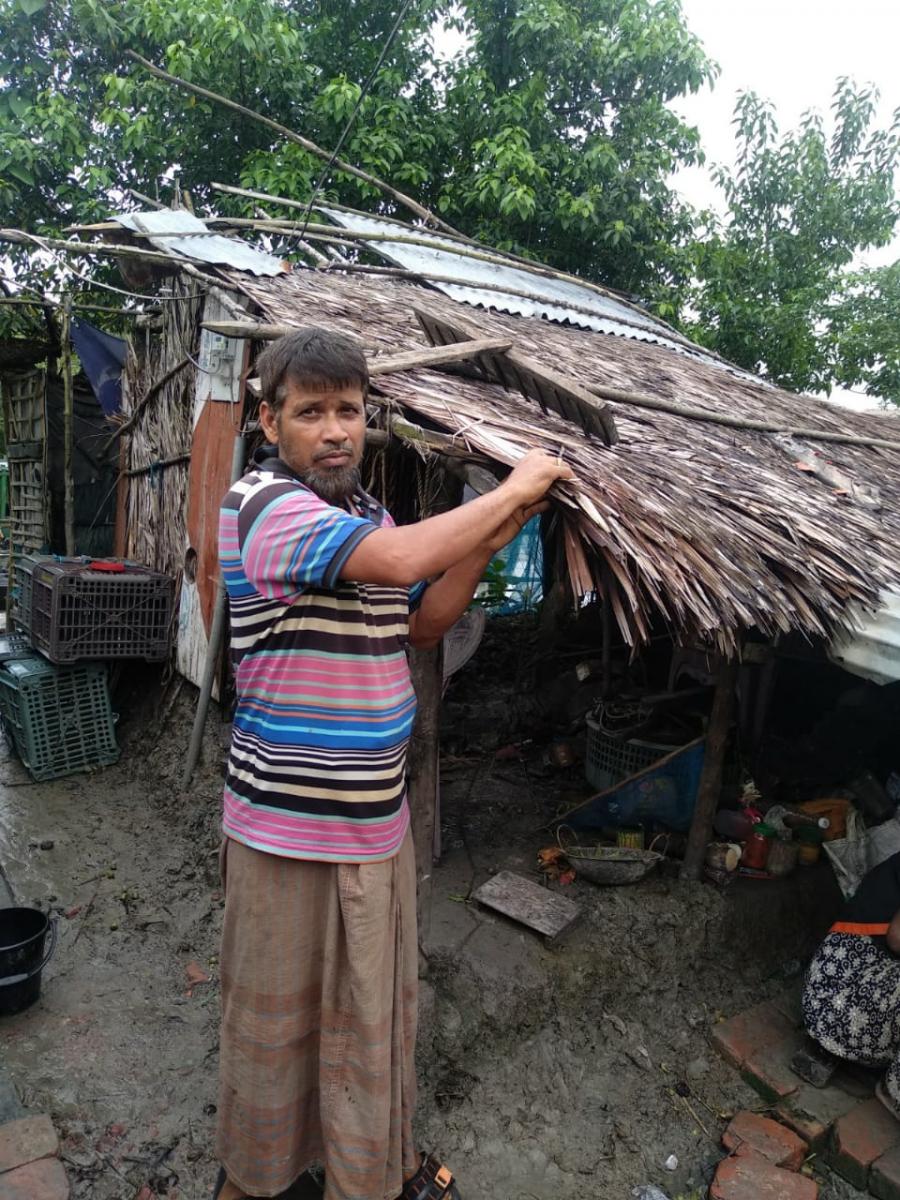 Photo: Unnayan Onneshan
Photo: Unnayan Onneshan
As Khalil Dhali, one of the TRUs and also the president of a cooperative, mentions: “Majority of us became jobless when COVID-19 appeared. We have little scope to find alternative jobs. Besides, most of us have not even received any relief or grant from the government. Some have received a little; the amount however is not adequate to bear the expenses even for a month. In addition to family expenses, we also have to pay interest to money lenders. How can we pay interest of borrowed loans and provide sustenance without income or adequate grant or relief?”
Khalil Dhali repearing his damaged house Photo: Unnayan Onneshan
To extenuate the miseries of the people and improve their adaptive capacity against systemic shocks such as climate change impact or COVID-19, a fully-fledged lifecycle-based social security system is indispensable. Everyone, irrespective of their current income, must receive a universal basic income grant. A “whole of the society” and “one health approach”, therefore needs to be promoted, which can ensure equal access and benefit-sharing between human and nature, as well as ascertain well-being and good quality of life for every living being, and the environment simultaneously (see http://unnayan.org/).
 Photo: Rashed Al Mahmud Titumir
Photo: Rashed Al Mahmud Titumir
